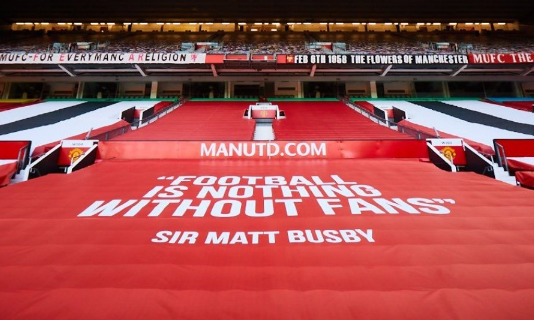“Football is nothing without fans” is a phrase that has been wheeled out regularly over the last year, since we have been locked out of grounds.
But how much power do fans have, apart from the ability to vote with their feet or with their wallets and not pay this season’s over-priced shirts?
Three clubs in English Football League – Exeter City, Newport County and AFC Wimbledon – are owned by the fans and are, therefore, fully transparent.
While a host of other clubs have had fan representation on their boards, they are nothing new, with Charlton Athletic being one of the first clubs to have one as far back as 1992.
Around this time, the Northampton Town Supporters’ Trust was formed, after the club was left on the rocks by Chairman Michael McRitchie, due to £1.6million worth of debts.
As a result, the trust was given to two representatives on the Northampton board, and they played a major role in steering the club towards a much brighter future.
More recently, the Wigan Athletic have been trying to raise £750,000 to secure their club’s future after they were placed into administration by a foreign investor.
A crowdfunding page they set up says that every pound raised will give the fans a greater say in running the club.
In the lower league and non-league’s football, this works well with the fan directors able to feed information back to the fan base on the latest goings-on and influence policy.
But the higher up you go, having fan representation on boards becomes little more than a PR exercise with clubs not wanting information to be freely available for commercial reasons.
A friend of mine was the fan director of a well-known club in the London area and has told me that he often found himself excluded from meetings where commercial activities were discussed.
Fan groups in England and Scotland only have so much power, but it is nothing compared with the all-powerful ultra groups that are in mainland Europe.
They often, more often than not, wield enough power to tell clubs which players they want to be bought and, in many cases, which they want to be sold.
It is quite safe to say that this level of influence won’t ever be seen in this country – imagine the carnage that would be caused by knee jerk reactions to a player having a bad game or three.
After that great man of the people Tony Blair, who was swept to power on populist policies with little substance behind them, set up a task force to get a fairer deal for fans.
It led to the Football Supporters Association and the National Federation of Supporters’ Clubs – now called the Football Supporters Federation – being set up.
But are they making a difference, with so much of their funding coming from the FA? Are they only willing to do so far for fear of upsetting their paymasters?
What is needed is a truly independent body that isn’t paid for by clubs or a national association – then you might start to see some real change in the way that fans are represented.
by Neil Fissler












